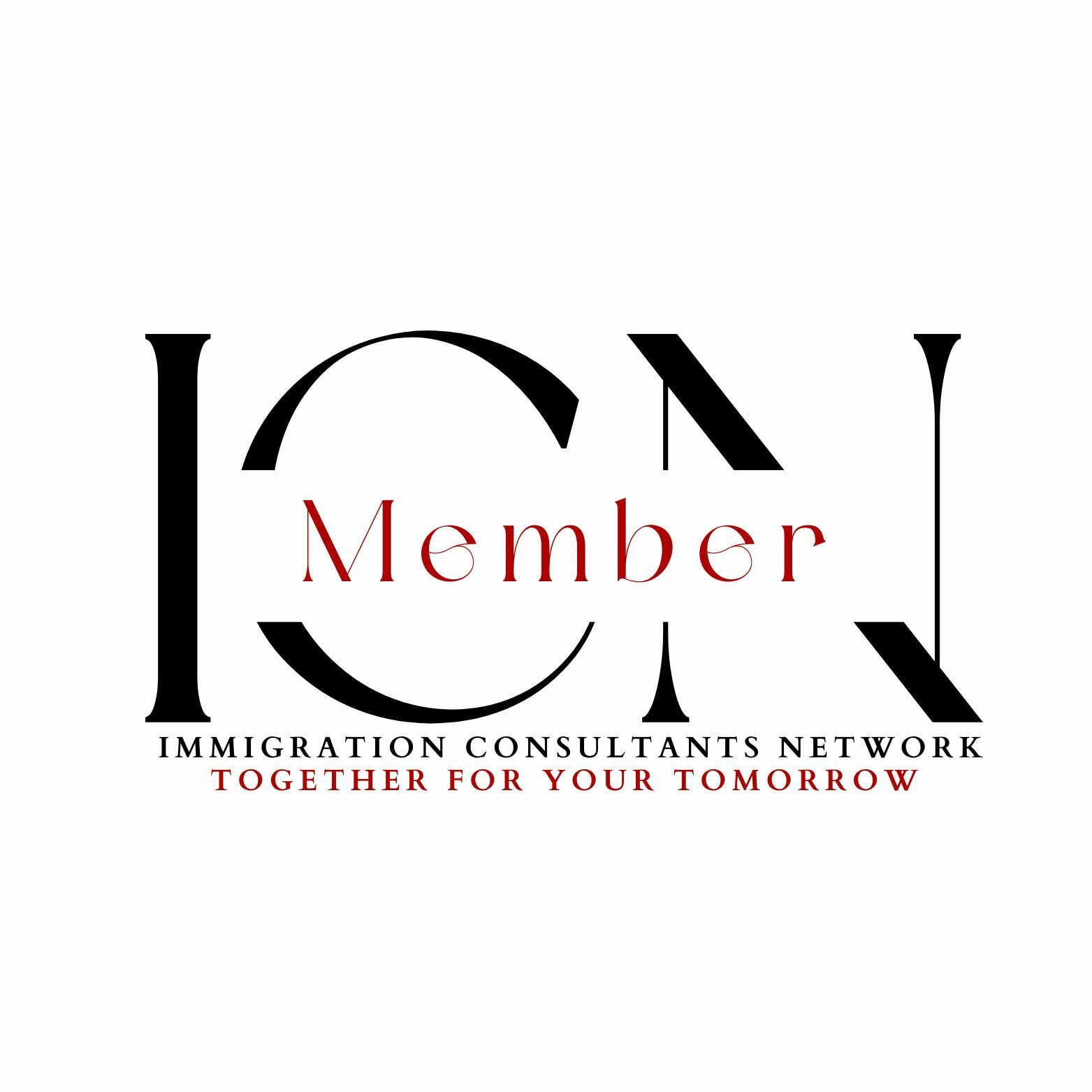WORK
Working In Canada
Every year Canada welcomes thousands of temporary foreign workers to help fill the skilled labour shortage. They play an essential role by contributing to the Canadian economy. On the other hand, they are treated with the same respect and dignity as well as their employment rights are protected by Canadian law. Working in Canada brings its own benefits like decent pay, work-life balance, quality life, earn valuable Canadian work experience and a potential pathway to become a Permanent Resident. A foreign national would usually need a work permit to work in Canada. You may work without needing a work permit in some cases.
There are two types of work permits: Open Work Permit and Employer-Specific Work Permit.
An open work permit allows you to work for any employer and anywhere in Canada with some exceptions. With an Employer-Specific work permit, you can work for a specific employer, location and duration as applicable.
To be eligible for a work permit you must:
- Prove to the immigration officer that you will leave Canada at the end of your work permit validity period.
- Obey the laws, have clear criminal record and not be a security risk to Canada. You may be required to submit the police clearance certificate to prove this.
- Have adequate money to support yourself and family members in Canada and return to your home country.
- Have good health; a medical exam may be required where applicable.
- Meet other requirements.
Depending on individual’s situation three ways to apply for Canada Work Permit:
1. Apply Inside Canada
2. Apply from outside Canada
3. Apply at Port of Entry
In some cases, you may not need a work permit to work in Canada. Some of the examples are:
- Work On Campus / Off-campus as a student at DLI in Canada.
- Business Visitors
- Performing artists
- Public Speaker
- Short term highly skilled worker
- Short term researcher
- Many more….
Read more

LMIA Work Permit
Low wage workers:
When the employer is offering a wage to the foreign worker that is below the provinical or territorial median hourly wage, they need to apply under Low wage worker category.
High wage workers:
When the employer is offering a wage to the foreign worker that is at or above the provincial or territorial median hourly wage, they need to apply under High wage worker category.
Quick Facts:
- Validity of LMIA is 6 months after it is issued however ESDC can issue an LMIA with valdity less than 6 months in some cases.
- The new LMIA application should be sent at least 4 months before the expiry of the current work permit.
- Employer must pay foreign worker wages that are similar to wages being paid to Canadians or Permanent Residents employees working in the same job type, work location and with similar years of experience and skill sets.
- Foreign workers hired through LMIA process must perform only duties as per the occupation they were hired for.
Caregiver Work Permit
On June 18, 2019, government of Canada introduced Home Child Care Provider and Home Support Worker pilots replacing Caring for Children and Caring for People with High Medical Needs pilots. Under these two pilot programs, caregivers will be able to become permanent residents quickly once caregivers have met the work experience requirement.
About the process:
- Apply to either Home Child Care Provide Pilot or Home Support Worker Pilot.
- Apply Work Permit application and Permanent Residence application together.
- If you meet the requirement, you get a work permit to work in Canada temporarily for upto 3 years.
- You can work for any employer as a caregiver
- Once you have 24 months of work experience in 36 months, inform IRCC to qualify for permanent residence.
To be eligible to apply, you must:
- Have a valid and genuin job offer.
- Have a minimum CLB 5 in English or NLCL 5 in French in all four abilities.
- Have at least 1 year post-secondary Canadian education or equivalent if outside Canada.
- Have relevant work experience and training to do the job.
- Be admissible to Canada.
- Plant to live outside the province of Quebec as a PR.
Quick Facts:
- Caregivers can choose to live in or live out of employer house.
- Caregivers will get occupation-specific work permits, rather than employer-specific, so that they can change the employers quickly when required.
- LMIA is not required to process the work permit application under these two new pilot programs.
- Caregivers family members can also come to Canada together and can apply for work permit or study permit at the same time.


Post Graduate Work Permit
After graduating from a Designated Learning Institution (DLI), eligible students can apply for the Post Graduate Work Permit. It is very important to choose the right DLI for this purpose because not all DLIs make you eligible for PGWP. It can be issued up to three years depending on the length of your study program. Thousands of students choose this as a first step on the pathway to Permanent Residence through “Canadian Experience Class”.
To be eligible for PGWP, a student must:
- Be at least 18 years old
- Have graduated from a DLI and studied as a full-time student for at least 8 months before you apply
- Must apply within 180 days from the day you received your final marks
- Have been holding a study permit during these 180 days
- Meet other requirements
You cannot apply for PGWP if you:
- Studied a program that was less than 8 months
- Were issued PGWP previously
- Studied English or French as a second languauge
- Completed 50% of study program by distance learning (correspondence, online course)
- Participated in the Organization of American States Fellowship Program
- Participated in Equal Opportunity, Canada-Chile or Canada-China Scholars Exchange Program
- Participated in the Government of Canada Award Program funded by Global Affairs Canada (GAC)
Quick Facts:
- It is an open work permit therefore you can work for any employer at any locations and field in Canada with some exceptions.
- If you applied as an eligible candidate for PGWP, you can work fulltime while waiting for a decision on your work permit.
- You can gain valuable Canadian experience and can be eligible to apply for Permanent Residence
Spousal Work Permit
Canadian government want to see families living together in Canada and gives privileges to eligible spouses and common-law partners to work in Canada by applying for an open work permit.
You can be eligible for an open work permit in Canada if you are the spouse or common-law partner of:
- A full-time international student at DLI on a valid study permit.
- A skilled worker on a valid work permit.
- An applicant of Atlantic Immigration Pilot Program
- A Canadian or Permanent Resident and are being sponsored under Spouse or Common-Law Partner in-Canada Class
Another requirement:
- You must be admissible to Canada on Medical, Criminal and Security grounds


Work Permit Extension
There are many occasions where your situations change while you are working as a temporary foreign worker in Canada. E.g. your job is extended, you changed the employer, you applied for Permanent residence etc., and you may want to extend your work permit to continue staying and working in Canada. You must apply to extend your work permit at least 30 days before your current work permit expires.
Your job is extended:
If your current job is extended for any reason, you can not continue your work if your work permit expired and you must extend your work permit. If your work permit expired and you applied 30 days before it expired, you can work under the same conditions on your current work permit while you are awaiting the decision.
A different job with the current or different employer:
If you are offered a different job in Canada either with your current employer or a new employer, you must apply for a new work permit. You cannot start your new job with a current work permit. Also, your employer will have to apply for a new LMIA or CAQ (for Quebec) to support your application. If your current work permit is expiring in 2 weeks and you haven’t received a new LMIA or CAQ, you can still submit your application provided you can give the proof that the LMIA or CAQ application was made.
Bridging Open Work Permit:
With this type of work permit, you can continue work in Canada while you are waiting for the final decision on your Permanent Residence application.
You can apply for a bridging open work permit if:
- You are currently living in Canada
- You have applied for Permanent Residence
- You have a valid work permit
- Your current work permit expires in 4 months or less
However, you can only apply if you applied for Permanent Residence under one of the following categories:
- Federal Skilled Worker
- Federal Skilled Trade
- Canadian Experience Class
- Caring for Children or People with high medical needs
- PNP
Quick Facts:
- If you have applied under PNP category and have employment restrictions on your nomination, you cannot apply for a bridging open work permit.
- If you are living in Quebec, you cannot apply for a bridging open work permit
How can Pentagon Immigration Help you?
Immigration law is complex and always keeps changing. Even a single minor error in your application may cause delay or rejection of the file. At Pentagon Immigration Services, we provide comprehensive expertise for your Express Entry application. Our professional practice involves competent knowledge, honest advice and personalized services. No one can guarantee you the success of your application; it’s at full discretion of the visa officer. What we guarantee you is the careful, error-free and strategic submission of your Express Entry application so you have very high chances of success. We stand by our clients right from initial consultation to the final decision on the file. And this is not it. We care for our clients, that’s why we provide them with pre-departure orientation and settlement services so they can be well integrated in Canada comfortably.
To know more about canada work permit, get in touch with us today!
FAQs
What immigration program is good for me?
Whether you are looking to immigrate to Canada temporarily or permanently, there are currently more than 60 programs available for immigration to Canada. But every individual’s situation is different and so is the program requirements.
That’s is why it is important that proper and careful assessment of your profile is done to determine your eligibility for one or more programs suitable for you.
You can take advantage of our ‘Free Assessment’ tool and check your eligibility for immigration to Canada. Once you have submitted the assessment form, it will be reviewed by our expert and qualified ‘Regulated Canadian Immigration Consultant (RCIC)’ and you will be invited to have a ‘Free Initial Consultation’ with an RCIC either in person or over the phone at your convenience where you will be presented with your available options for immigration to Canada. In case you are not eligible now, it will still allow you to understand the line of actions you can take to be eligible in near future.
What documents are required while creating an Express Entry Profile?
You must meet the minimum eligibility requirement for at least one of the three categories of Express Entry program before you can create your online profile. Three programs are Federarl Skille worker, Federal Skilled Trade and Canadian Experience Class.
Certain documents are required while creating an Express Entry profile. However, you need to have some or all of the following documents to enter the information only; you don’t have to upload these documents while creating the profile.
- Passport or Travel Document
- Language test results
- Education Credential Assessment (ECA) to claim points for education outside Canada
- Provincial Nomination (If available)
- Valid job offer letter from a Canadian employer (If available)
That’s is why it is important that proper and careful assessment of your profile is done to determine your eligibility for one or more programs suitable for you.
You can take advantage of our ‘Free Assessment’ tool and check your eligibility for immigration to Canada. Once you have submitted the assessment form, it will be reviewed by our expert and qualified ‘Regulated Canadian Immigration Consultant (RCIC)’ and you will be invited to have a ‘Free Initial Consultation’ with an RCIC either in person or over the phone at your convenience where you will be presented with your available options for immigration to Canada. In case you are not eligible now, it will still allow you to understand the line of actions you can take to be eligible in near future.
Who can represent my case for immigration to Canada?
Anyone who provides advice and representation on Canadian Immigration or Citizenship matters for a fee is required to be a member in good standing of ICCRC or Chambre des notaires du Québec or a Canadian provincial or territorial law society of Canada according to the Canadian law.
“Immigration Consultants of Canada Regulatory Council (ICCRC)” is the national regulatory body for ‘Regulated Canadian Immigration Consultants (RCIC)’. An RCIC can advise you on Canadian Immigration matters and represent your case to “Immigration Refugee and Citizenship Canada (IRCC)”
Vaibhav Kalbhor is a Regulated Canadian Immigration Consultant (RCIC) R531255, a member of ICCRC in good standing and is authorized by IRCC to represent your interests in Canada Immigration matters.
IRCC does not deal with representatives who charge a fee but are not authorized. If you use such a representative, your file may be returned or even rejected.




